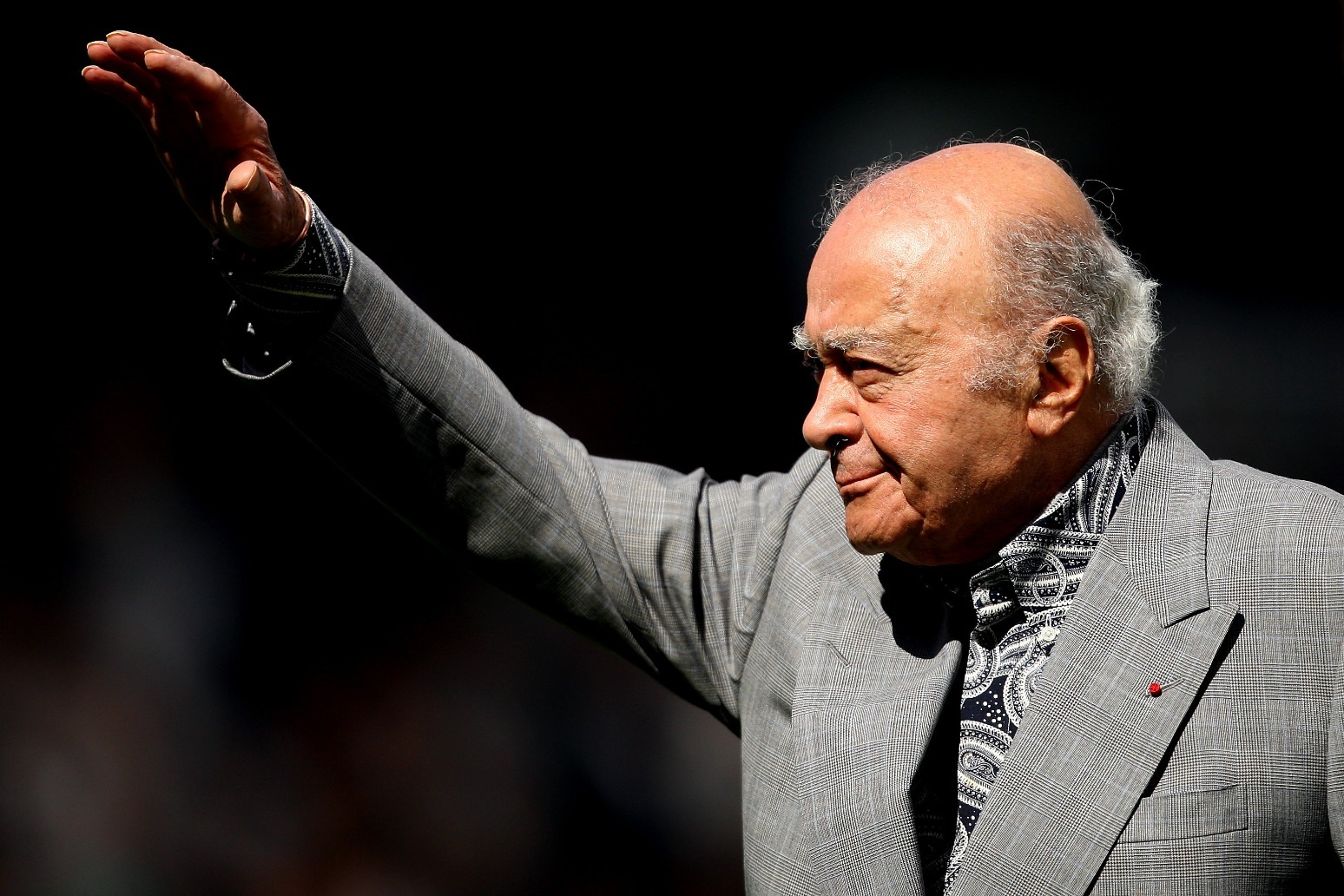
CPS twice did not prosecute Mohamed Al Fayed after police presented evidence
The Crown Prosecution Service twice decided not to prosecute Mohamed Al Fayed after reviewing files of evidence presented by the police on the former Harrods owner.
Evidence was shown to the CPS in 2009 and 2015, but it decided not to go ahead with the prosecution because there was not “a realistic prospect of conviction”.
Five women have alleged they were raped by Mr Al Fayed, who died last year at the age of 94, with a number of others alleging sexual misconduct.
Prime Minister Sir Keir Starmer was head of the CPS as director of public prosecutions from 2008 to 2013, but a Downing Street spokesperson said he did not handle Mr Al Fayed’s case, adding it “did not cross his desk”.
In 2018, 2021 and 2023, the CPS provided early investigative advice to the Metropolitan Police following allegations made against Mr Al Fayed.
However, a full file of evidence was never received by the CPS in each of these instances and they were given no further action by police.
A file of evidence must be presented to the CPS by an investigating police force for it to have formal involvement in a case.
A CPS spokesperson said: “We reviewed files of evidence presented by the police in 2009 and 2015.
“To bring a prosecution the CPS must be confident there is a realistic prospect of conviction – in each instance our prosecutors looked carefully at the evidence and concluded this wasn’t the case.”
The Metropolitan Police said it had investigated “various allegations of sexual offences made over a number of years” about Mr Al Fayed, but “no charges resulted from these investigations”.
It added that “if any further information comes to light it will be assessed and investigated accordingly”.
A Downing Street spokesperson said: “Keir did not handle this case. It did not cross his desk.”
Education Secretary Bridget Phillipson told Sky News’ Sunday Morning with Trevor Phillips that Sir Keir Starmer had made tackling violence against women a “personal priority” when he was head of the CPS.
Ms Phillipson said: “He turned the CPS around while he was leading it to focus on that. But, clearly, if there have been issues that should be considered, that should happen.”
She added: “I don’t know the details of what happened in 2009, there sometimes can be issues with the evidence that’s presented by the police, whether that can lead to a conviction.”
Deputy Prime Minister Angela Rayner said she was concerned by a culture of “powerful people who seem to get away with it” in response to the allegations about Mr Al Fayed.
She told BBC’s Sunday with Laura Kuenssberg: “I think the CPS has said that they didn’t have the evidence at the time. I’m not au fait with all of the details.
“But what really concerns me, and it seems to come up time and time again, is powerful people who seem to get away with it.”
Ms Rayner added: “I think there’s a lot of work that needs to be done to make sure that nobody is above the law and can hide in plain sight.”
Commander Kevin Southworth, who leads on public protection for the Metropolitan Police, said: “We are aware of various allegations of sexual offences made over a number of years in relation to the late Mohammed Al Fayed which were reported to the Met.
“Each one was investigated and, where appropriate, advice from the Crown Prosecution Service was sought.
“No charges resulted from these investigations.”
Mr Southworth added: “Anyone who has been the victim of a sexual offence is encouraged to speak to police so they can be provided with support and any offence can be investigated.
“As with any investigation, if any further information comes to light it will be assessed and investigated accordingly.”
A legal team representing alleged victims confirmed on Saturday morning that they have “had over 150 new inquiries” since the airing of a BBC documentary on Mr Al Fayed.
The inquiries relate to a “mix of survivors and individuals with evidence about Al Fayed”, a spokesperson for the team confirmed to the PA news agency.
Published: by Radio NewsHub